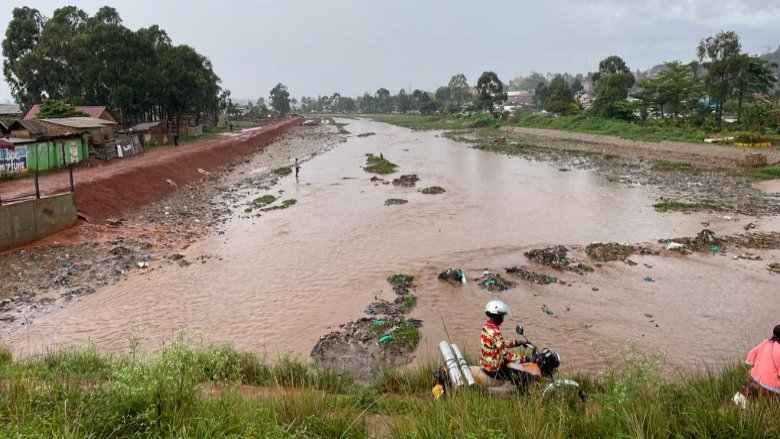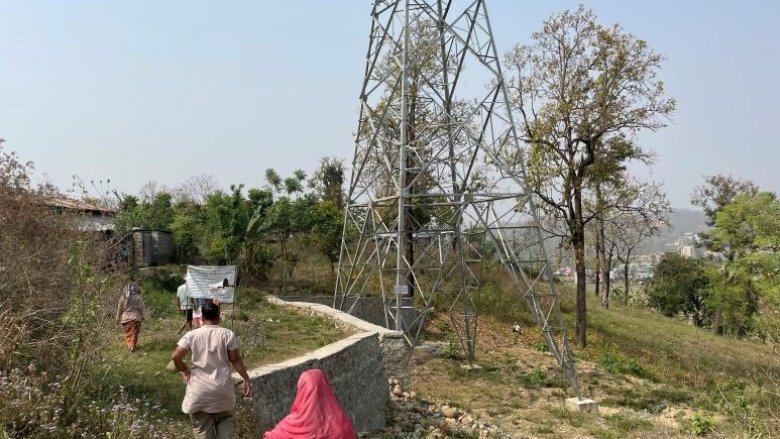Communities, governments in Nepal and Uganda reach agreements in processes facilitated by Accountability Mechanism’s Dispute Resolution Service
In the last two months, the first two cases facilitated by the independent World Bank Accountability Mechanism’s Dispute Resolution Service reached settlements between the parties – just as deadlines for each mediation process were about to expire.
In Uganda, in late May, community members affected by a World Bank-financed infrastructure project and the Kampala Capital City Authority agreed to a settlement after an 18-month mediation process.
In late April, community members living along the planned pathway of a transmission line and the Government of Nepal agreed to a settlement that met the concerns of the complainants. This paves the way for the completion of the long-delayed power line, facilitating the flow of electricity within Nepal and between Nepal and neighboring India.
Orsolya Székely, Accountability Mechanism Secretary, praised the work of the parties in both cases.
“For the Nepal and Uganda dispute resolution cases, I want to thank the community members and the government representatives for trusting the process and working with each other to find a mutually acceptable outcome,” she said. “In each instance, the parties showed great commitment and resolve in reaching an agreement, aided by our excellent mediators and team members, the community’s advisers, and Bank Management as observers. The cases were the first ones where the Accountability Mechanism process and the Dispute Resolution Service implemented the new structure established three years earlier by the World Bank Board.”
The Uganda complaint arose from the Second Kampala Institutional and Infrastructure Development Project, a $183 million initiative designed to improve urban mobility and economic growth in the greater Kampala area. The resolution of the case addressed many concerns raised by community members around an involuntary resettlement and land acquisition process. Details of the settlement remained confidential by agreement of both parties.
In 2020, the World Bank Board of Directors formed the Accountability Mechanism (AM) to house both the Inspection Panel and a new Dispute Resolution Service. With this new mechanism, communities who have filed a complaint about a World Bank-funded project now had the option of either mediation or a compliance investigation process.
The Dispute Resolution Service became operational in late 2021, and had drawn up interim operating procedures just in time for the start of the Uganda dispute resolution case.
In the Uganda dispute resolution process, two civil society groups – Witness Radio and Accountability Counsel – served as advisers to the community. The Government’s lead representative was the Kampala Capital City Authority (KCCA), the agency responsible for implementing the project.
“I would like to thank Dispute Resolution Service and the World Bank, as well as Accountability Counsel and Witness Radio, who are our advisers, for their good work done for us,” said Peter Kazibe, one of the community members who signed the agreement. “We thank the World Bank for not letting us down. Since we raised our complaint, they stayed with us until the conclusion. I also thank KCCA for participating in these negotiations. Had they not agreed to come, we would never have achieved anything.”
David Luyimbazi, KCCA’s Deputy Executive Director, said he also appreciated the opportunity to engage in a deeper, constructive manner with members of the affected community.
“On behalf of Kampala Capital City Authority, we are very glad that we have reached an amicable settlement on the issues raised by the requestors,” Luyimbazi said. “The process has been a learning one where the importance of respectful engagement between parties has been one of the highlights. This has been an agreement between equal partners for the good of the project and the country. We look forward to implementing the agreed actions in compliance with the commitments we have made here today in the presence of the Dispute Resolution Service members.”
In the Nepal case, the specifics of the agreement remained confidential too, by request of all who signed the deal: the Nepal Electricity Authority and 63 community members.
The case involved a complaint filed in late 2021 by community members in Dumkibas, about 200 kilometers (135 miles) west of the capital Kathmandu. The construction of the last two towers for the 220 kilovolt, decade-old Bharatpur-Bardaghat Transmission Line Project was put on hold pending the outcome of the dispute resolution case.
“The Dispute Resolution Service’s role in bringing the legitimate demands of the community toward a sustainable solution through repeated engagement in mediation between the Nepal Electricity Authority and the community is commendable,” said members of the community in a statement. “We, the affected community, are fully confident that the Dispute Resolution Service will continue its presence and provide necessary support.”
Dominique Favre, an Executive Director on the World Bank Board and Chairman of the Board’s Committee on Development Effectiveness, also thanked the Dispute Resolution Service and its mediators “for their work [in Nepal] in bridging the differences between the parties. The outcome is of major significance for those on the World Bank Board who believe that the dispute resolution option in some cases can help communities and governments overcome impasses and assure that we are held accountable for the projects we finance.”
In both the Uganda and Nepal cases, the dispute resolution process started with both parties drafting a framework agreement, which established the scope of the mediation, the key issues, the representatives of the parties, the roles of advisers and observers, and an agreement that the process would be bound by strict confidentiality. By agreement of the parties, World Bank Management representatives joined the process as observers at appropriate points of the mediation.
The independence of the Dispute Resolution Service from Bank Management was ensured throughout each process, and Bank Management were similarly bound by confidentiality requirements related to the mediation.


